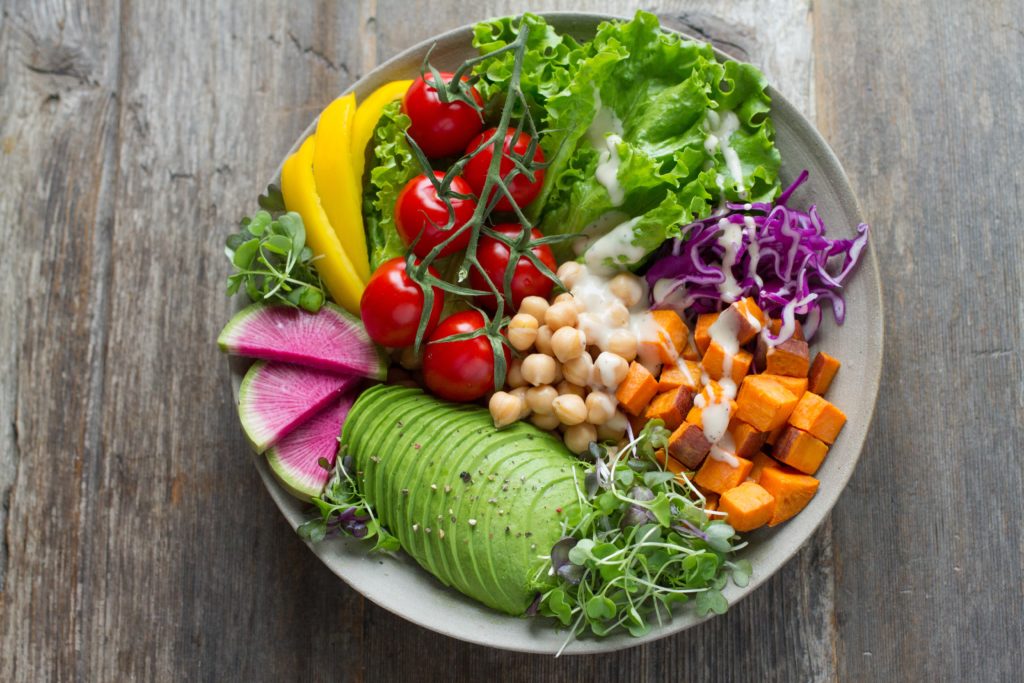
If you visit New Wave Foods’ website, the first thing you’ll see is a skillet filled with ruby tomatoes, glistening capers, and black olives mingling with juicy shrimp and twirls of pasta. Then the picture changes: Now it’s bowl of black rice topped with hearty broccoli, cubes of butternut squash, and more shrimp doused in glossy sauce. By now, you’re probably hungry.
But there’s a catch: the “shrimp” aren’t actually shrimp at all. New Wave Foods specializes in making plant-based, vegan seafood from seaweed. It’s all part of New Wave Foods’ mission to halt abuses in the seafood industry–including pollution, habitat destruction, and overfishing–without leaving seafood-lovers in the lurch.
New Wave Foods’ story exists within a larger context: the rise of plant-based diets. In 2018, a study by Nielsen concluded that the plant-based food market is worth more than $3.3 billion in sales, outpacing average dollar sales in the total food market by a factor of 10.
As Americans’ appetite for plant-based food grows, restaurants and grocery stores continuously search for innovative new products. The result? Greater investment in plant-based foods, generating new opportunities to eat compassionately.
Let’s take a closer look at three key ways the plant-based food market is changing.
The market for plant-based foods is booming
As people search for plant-based alternatives to meat, seafood, eggs, and dairy, food producers are rising to the challenge. Since 2009, more than $2 billion worth of investments have supported research and development of plant-based meat products alone. Some estimate that investments could top $20 billion before long, especially as new food startups emerge.
It’s easy to guess why plant-based foods are becoming popular now. With the threat of climate change looming large, researchers have offered evidence that a plant-based diet can help reduce carbon emissions. Cost and health concerns also form key considerations, according to a study by the Johns Hopkins Center for a Livable Future, which found that two-thirds of people are eating less of at least one type of meat.
But the best explanation for the sudden rise of vegetarian and vegan cuisine might be the simplest: Plant-based foods are delicious.

Consider HipCityVeg, a growing fast-casual franchise with multiple locations in Philadelphia and Washington, DC. With a menu full of familiar burgers, fries, and shakes, HipCityVeg proves that plant-based options go beyond salad (although they make great salads, too). Grassfed Media is working with Aviva Goldfarb Marketing on the grand opening of HipCityVeg’s second DC location in Dupont Circle, and the response has been tremendous, with media coverage in Eater,WTOP, VegNews, and more.
Consumers are eager to purchase plant-based ingredients and meals that help them save money, prioritize their health, and protect the environment. As the market continues to trend upward, plant-based options will become increasingly innovative and diverse.
Plant-based protein shows vegan food doesn’t sacrifice flavor or nutrition
The top question on our client TryVeg’s website is an especially common concern: Can plant-based foods provide enough protein?
The answer is definitely yes. Ingredients like hemp hearts, beans, soy, lentils, and chickpeas can all supply as much protein as non-plant-based foods can. The diverse range of plant-based proteins available today meet a wide variety of consumer preferences and needs.
For example, Beyond Meat’s plant-based burgers pack 20 grams of plant-based protein into each serving. They’re also made without soy, GMOs, and, well, meat–all without sacrificing the juicy texture and richness people crave.
Beyond Meat’s deals with approachable brands like Carl’s Jr., Del Taco, and TGI Friday’s have allowed its plant-based burgers to gain a foothold in spaces that aren’t known for vegetarian fare. Additionally, a partnership with Blue Apron helps home cooks learn new plant-based recipes.
With plenty of plant-based protein options on the market, even athletes can get the nutrition they need from a meat-free diet.
People are reaching for plant-based comfort foods
As Americans’ familiarity with vegan and vegetarian food grows, many are discovering plant-based versions of their favorite foods. Pizza, ice cream, bacon, and virtually any other food product can be reimagined without dairy, eggs, or meat.
Take Miyoko’s plant-based cheeses, for example. Inspired by the rich sauces and elegant cheese plates that define French cooking, Chef Miyoko Schinner developed her own line of vegan alternatives that produce 20 times less greenhouse gases than traditional cheese. Similarly, JUST produces everything from plant-based egg substitute to mayonnaise, salad dressing, and more. JUST’s products help consumers create new plant-based recipes and options for cookie dough, potato salad, French toast, ranch dressing, and more.
Consumers don’t want to give up comfort foods–but plenty will happily switch to a plant-based version that tastes just as good.
Compassionate food creates a brighter future
At Grassfed Media, our clients create a more compassionate world by providing plant-based foods and resources. Whether you’re ready to embrace a fully vegan diet or simply want to try something new, today’s plant-based foods deliver incredible flavor and nutrition.
With plant-based diets on the rise, we’re seeing the future now–and it’s delicious.
Written by Michelle Delgado
